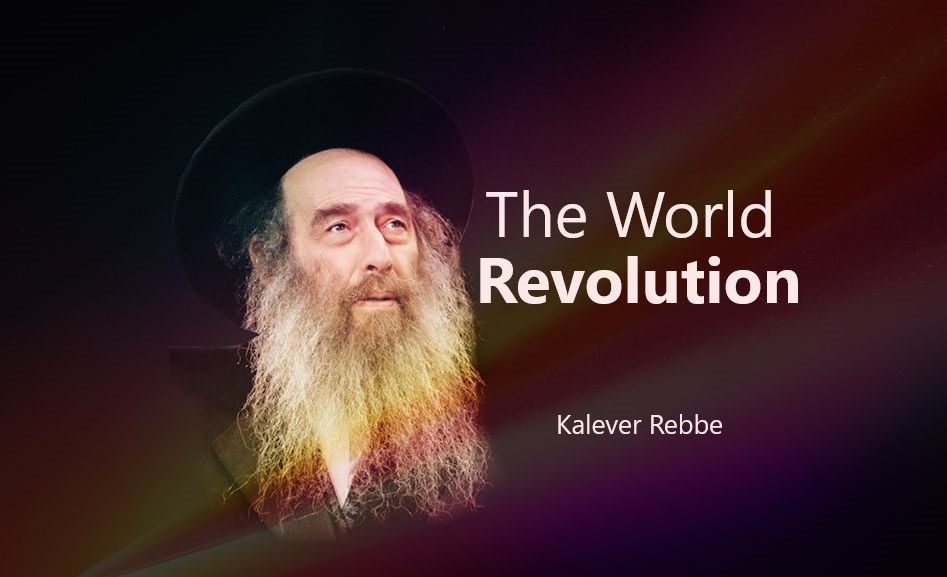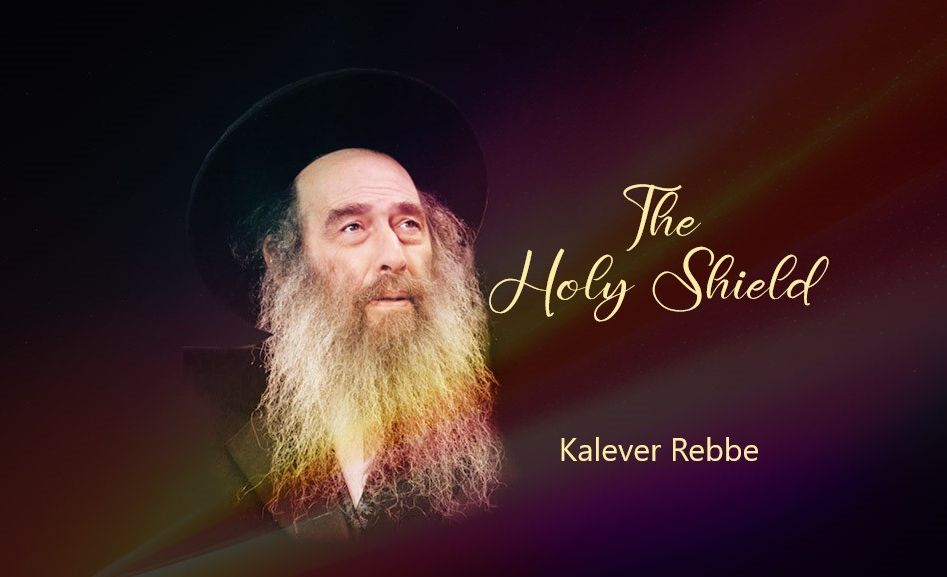
So-called Extremists
There is tremendous reward for those who hold fast to Yiddishkeit in the face of ridicule. For every committed Jew, there many who mock him and call him “extremist” and "right-winger".

“And the children of Israel were armed when they went up out of Egypt. Moshe took Yosef’s bones with him.” (Shemot 13:18-19)
R’ Shmuel Wolf zt”l – who passed away last week – spent the years of the Holocaust in the labor camps as a child. The war left him orphaned. He lost his entire family, and all of his friends.
After the war, an organization took him to an orphanage, promising that all his needs would be met, and that the other boys would become his family. However, shortly after arriving, he realized the boys were abandoning their Yiddishkeit. R’ Shmuel would rather be alone than in a place that was destroying Yiddishkeit. He ran away from the orphanage. He faced all the challenges of being a young child on his own, but he never ceased to serve his Creator even in the most difficult times.
Eventually, he ended up in Antwerp. One day, the Heavens sent him a moment of inspiration; R’ Shmuel suddenly had the idea to invent a machine that could cut a better-quality diamond. He submitted his design to the patent office in the diamond district of Antwerp. His idea catapulted him to success, and he quickly became very wealthy. He raised generations of just and committed Jews who are learning and supporting Torah.
This story is just one example. There are countless stories of yidden who remained committed to Torah and mitzvot despite unimaginable obstacles and challenges, they remained observant even when everyone around them mocked and ridiculed them. In the end, their courage and fortitude were rewarded beyond measure.
Work and Reward
The effort one exerts to remain committed to Yiddishkeit in the face of ridicule and detractors, is incredibly admirable, and invaluable. There is a unique kind of reward for this commitment. As Chazal taught us (Pirkei Avot 5:23), Ben Hei Hei said: According to the pain is the reward.
The commentators explain that Ben Hei Hei was a righteous convert. He knew the tremendous challenges, trials and tribulations one can face when changing everything about their lives: when they leave their community, their friends, and their family. He knew the strength one needs to remain committed in the face of immense opposition and ridicule. His experience taught him the fortitude one needs to overcome their Yetzer Harah during such situations. Therefore, he wanted to provide encouragement to everyone who struggled like him, by explaining that the magnitude of the challenge corresponds to the immensity of the reward.
Who is More Distinguished?
R’ Naftali from Ropshitz, zt”l, was once describing the praises of his saintly and scholarly forebears. He then said, “It appears to me that no one has a more distinguished lineage than I.”
One Chassid replied, “My lineage is greater!”
The Rebbe asked in astonishment, “Who are your ancestors?”
“I am the only one in my family that put on tefillin and keeps Shabbat.”
“If that is the case,” the Rebbe said, “you are truly more distinguished than me.”
The Few Can be Great
The Maggid of Mezritch also taught that the pasuk says (Tehillim 37:15), “The few of the righteous are better than the multitude of many wicked men”. “Sometimes”, explained the Maggid, “a person can be referred to as a tzaddik even though he has only done a “few” good things, because he is surrounded by a multitude of wicked men.”
The tzaddikim have explained that even though the majority of the reward for a mitzvah cannot be received in this world, the pain one feels when they are mocked and ridiculed for doing a mitzvah is rewarded in this world.
This is what the pasuk says (Tehillim 31:20), “How great is Your goodness that You have laid away for those who fear You, You have worked for those who take refuge in You, in the presence of the sons of men!”
The reward for doing mitzvot is reserved for the World to Come. However, “You have worked for those who take refuge in You” even in this world. They are rewarded for observing Torah and mitzvot “in the presence of the sons of men” who mock them.
The Lesson from Egypt
We see this clearly by Yosef HaTzaddik. He was born when his father was already older. He was the most cherished son. And he became a slave. He was the only Jew in an entire country. At the age of 17, when passions and physical desires were at their peak, he withstood the seductions of Potiphar’s wife. Despite the temptations, he remained committed to Hashem. As a reward, Hashem turned his entire life around in a moment. He went from being a prisoner to becoming the viceroy of Egypt.
This provides an eternal lesson for the Jewish people. When they remain steadfast to Yiddishkeit in the face of ridicule and opposition, the reward is immense.
However, after Yaakov Avinu and Yosef HaTzaddik passed away, the eyes and hearts of the Jews became closed. They forgot this critical lesson. They began to assimilate and conform to Egyptian culture. For years, they had been consumed by the spiritual impurities of Egypt. Therefore, when Moshe finally came and announced that the time for their salvation had arrived and that Moshe would deliver them from their suffering and provide the Torah and mitzvot, most of the Jews did not listen to him. They did not want to go out. They were comfortable where they were.
However, there was a minority of Jews, one in fifty, who remained steadfast despite the challenges. They remembered the lesson of Yosef HaTzaddik. They did not assimilate. They maintained their Jewish names, clothing, and language. For every committed Jew, there were 49 others who mocked them. There were 49 Jews per one observant Jew who ridiculed their observance. They were called extremists and “right-wingers”. They were viewed as living in a lost era and unwilling to adapt to the changing times.
Yet, these Yidden remained holy and committed; they believed in Hashem and Moshe His Servant. Therefore, they had the clarity and right frame of mind to be ready and yearn for the moment they could leave Egypt. In the end, it was only these Jews who were redeemed. They received the Egyptians wealth and all of the goodness and blessings, physically and spiritually.
This can explain the continuity of our pasukim. The Torah tells us that and the children of Israel were ‘chamushim’ (armed) when they went up out of Egypt.” ‘Chamushim’ can also mean 50. Only 1/50th were redeemed from Egypt. Therefore, “Moshe took Yosef’s bones with him. ” He did so to serve as a reminder, that when a Jew faces a challenge, even ridicule and scorn from his own family and friends, he must recall the lesson of Yosef’s life. He remained steadfastly committed to Hashem, and he received immense reward.
The Kalever Rebbe is the seventh Rebbe of the Kaalov Chasidic dynasty, begun by his ancestor who was born to his previously childless parents after receiving a blessing from the Baal Shem Tov zy”a, and later learned under the Maggid of Mezeritch zt”l. The Rebbe has been involved in outreach for more than 30 years and writes weekly emails on understanding current issues through the Torah. Sign up at www.kaalov.org.










Tell us what you think!
Thank you for your comment!
It will be published after approval by the Editor.